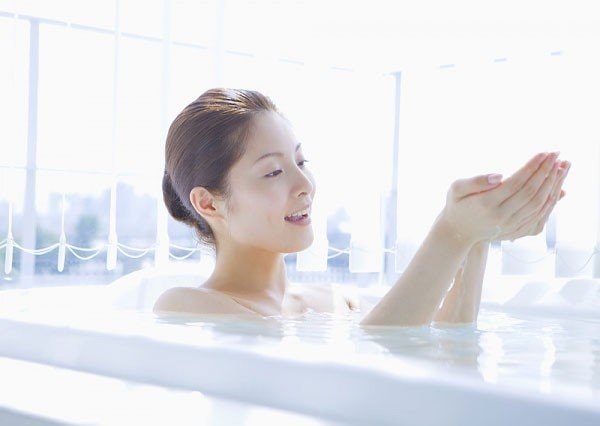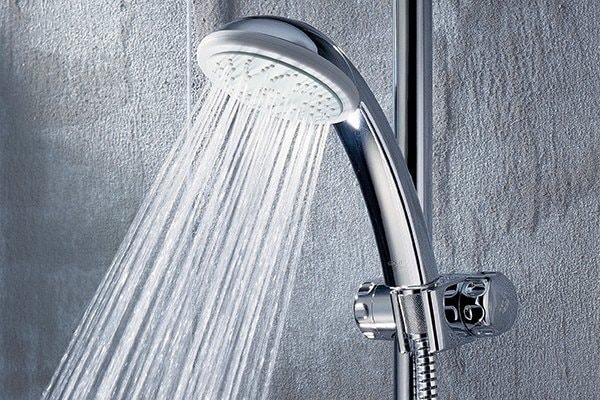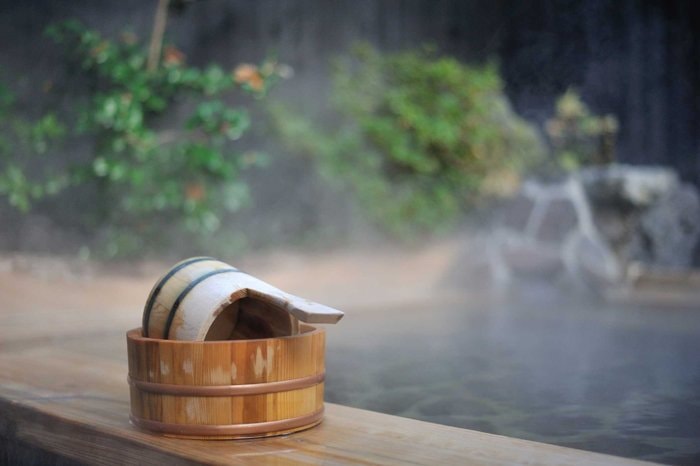7 taboos when bathing, even causing sudden death, not everyone knows
Bathing is a familiar action that everyone does every day. However, there are habits that become taboos that should not be done when bathing, otherwise it will affect health.
1. Do not bathe with hot water after exercising.
Many people like to take a hot bath immediately after exercise to relax their muscles, but in fact, after exercise, the body needs to return to normal. Therefore, after exercise, you should not take a bath immediately, especially soaking in a hot tub or sauna.
Because bathing immediately after exercise will increase blood flow to the muscles and skin, other organs blood supply is insufficient. At the same time, unstable breathing after exercise, then enter the bathroom, under the air circulation, the brain is very easy to lack oxygen, may appear symptoms such as dizziness, general weakness, more serious can also lead to low blood pressure, hypoglycemia and fainting.

You should not bathe immediately after strenuous activity.
According to experts, after exercise, it is best to rest for 30 to 45 minutes, then take a bath. Take a warm bath for 5-10 minutes, the water temperature is from 36 to 39 ° C, especially those with weak constitution should pay attention to the water temperature.
2. Do not sleep immediately after bathing.
Although bathing can improve sleep, you should not go to bed immediately after bathing. Because after bathing, your body temperature will increase, which is not conducive to the secretion of the hormone "melatonin" that helps you sleep well. It is best to arrange your bathing time 1 to 2 hours before going to bed.
After bathing, you can do a moisturizing mask, or listen to soft music, etc., after the whole body returns to normal, then you can rest assured to go to sleep. At the same time, you need to pay attention, after bathing, you must dry your hair before going to sleep. If you go to bed with wet hair, not only will it seriously affect the quality of sleep, but it will also easily cause headaches.
3. Bathing is not rinsing directly under the shower head.
There are people who think that bathing is simply standing under the shower and letting the water flow directly from the head down, in fact, this is also researched. When bathing, it is best to use bath salts. Use pure bath salts wrapped in a cloth, put it in the shower head, bath salts have the effect of killing bacteria, cleaning dirt on the skin and in the pores, helping the skin to supplement trace minerals.

When bathing, combining with bath salt will be better for the skin.
4. The best bath water temperature is 40 degrees Celsius
According to research, the temperature of the human body is about 40 degrees Celsius, so when bathing you should also keep the water at 40 degrees Celsius to best eliminate fatigue. If the bath water is too hot, the body will consume a lot of energy to regulate. If the bath water is too cold, the blood vessels will constrict, not only will it not eliminate fatigue but also make the body more uncomfortable. Experts advise that even in the middle of summer, the lowest bath water temperature should be 35 degrees Celsius.
5. The number of baths should not be too many
The number of times you bathe should not be too much, otherwise the normal amount of oil secreted on the skin's surface and all the protective bacteria that live on the skin will be completely washed away, making the skin weak and susceptible to skin-related diseases.
6. Don't forget to rub your face when bathing
When bathing, if you rub your face, it can speed up the blood circulation on your face, helping your facial muscles relax. The best speed to rub your face is once per second, use both hands to rub your face up and down continuously 3-5 times, then use warm water to rinse your face, for a total of 3 minutes.
7. Bath time is not too long

The most suitable bathing time for everyone is about 20 minutes.
Some people like to soak in the bath, even soak in the tub while listening to music. However, bathing for too long is not good for health, causes fatigue, and even leads to anemia and lack of oxygen in the heart.
In severe cases, long baths can cause coronary artery spasm, thrombosis, even arrhythmia and sudden death. In addition, long bath times cause a corresponding reduction in blood supply to the head, easily causing cerebral ischemia and unexpected accidents.


.jpg)





